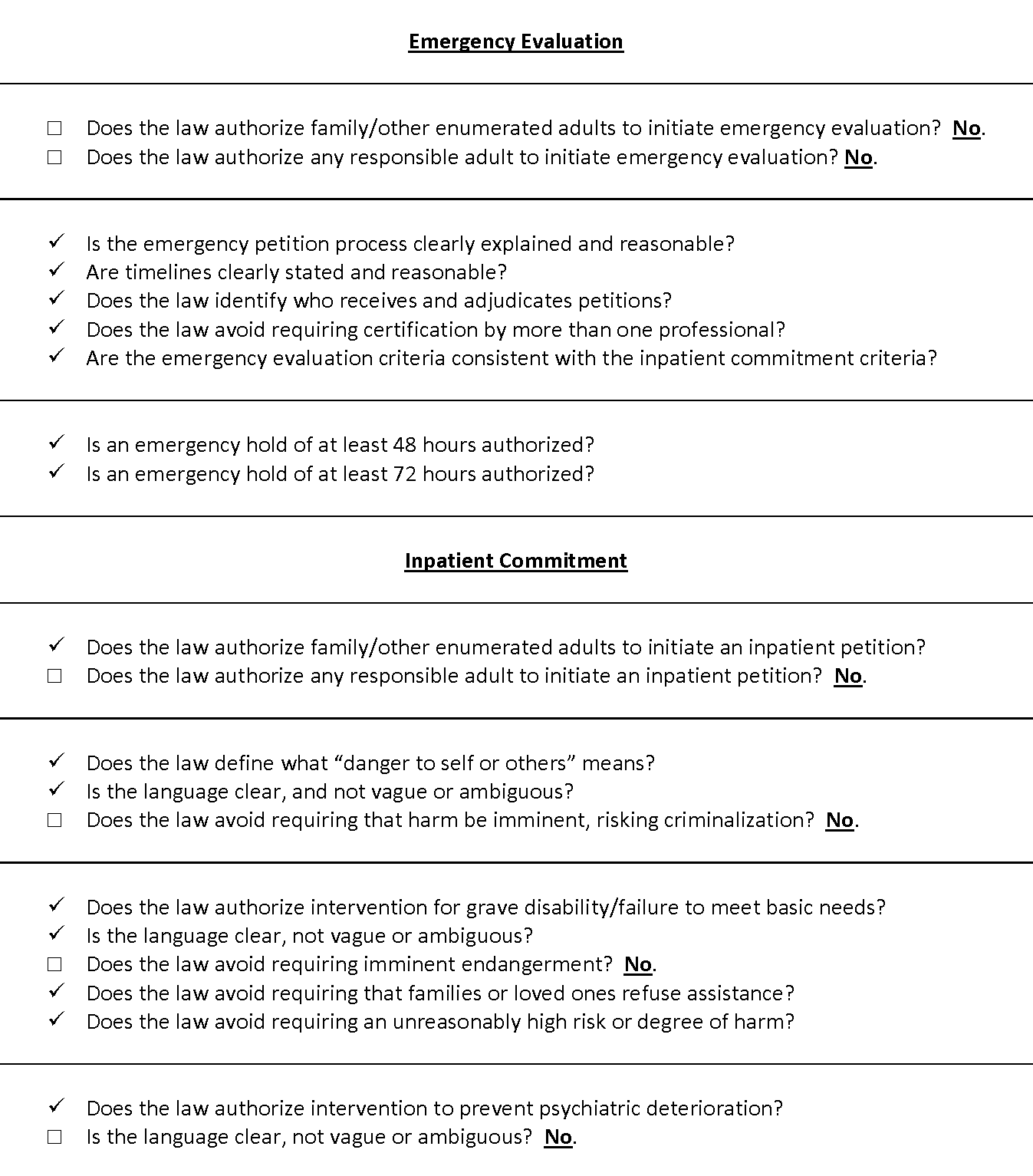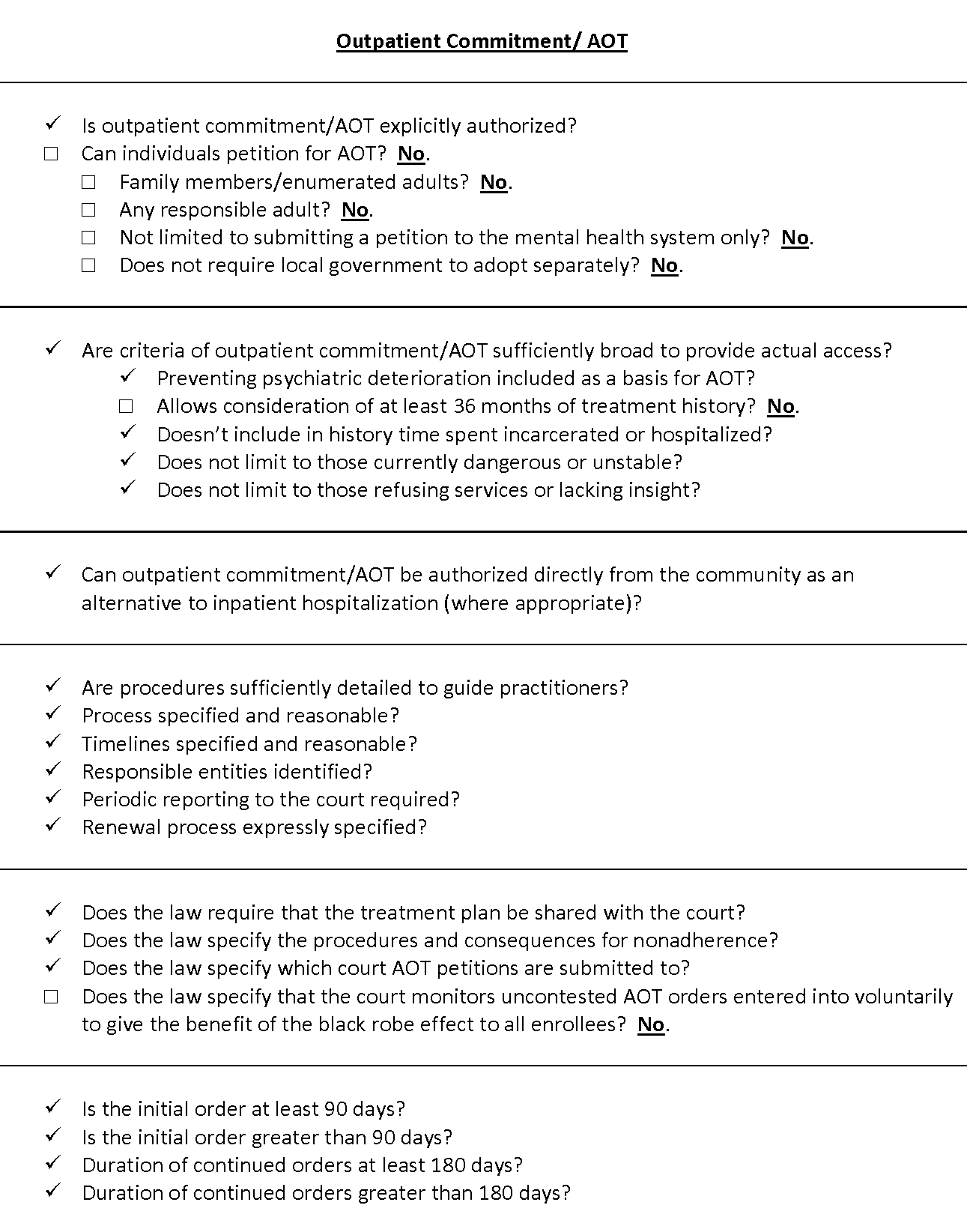Family Resources in Resources in Oklahoma
- Oklahoma Department of Mental Health and Substance Abuse Services (oklahoma.gov) Resources and contacts
- Oklahoma Health Care Authority (oklahoma.gov) Medicaid enrollment and information
- 211 Oklahoma (211eok.org/211-oklahoma) Information and service options by region and county
- Mental Health Facilities in Oklahoma (mentalhealthcenters.net) Facilities listed by location
- NAMI Oklahoma (namioklahoma.org) Support groups, training, information
- Oklahoma Disability Law Center, Inc. (okdlc.org) Protection and advocacy for individuals with disabilities
- Homeless Information: Oklahoma | U.S. Department of Housing and Urban Development (hud.gov/states/oklahoma) Shelter locator and links to local resources
- Ok Department of Corrections Offender Search (okoffender.doc.ok.gov) Search for a person in prison by name, OK DOC number, and birth date
- Oklahoma Bar Association (okbar.org) Legal assistance
How many people in Oklahoma have SMI?
Severe mental illnesses (SMI) are the psychiatric disorders that puts an individual at greatest risk for anosognosia, criminalization, and preventable tragedies such as victimization or suicide. The term SMI includes schizophrenia spectrum disorders, severe bipolar disorder, and major depression with psychotic features.
individuals with severe mental illness.
individuals with SMI who receive treatment in a given year.
of the adult population is estimated living with a SMI in the United States.
State psychiatric hospital beds in Oklahoma
2023 total beds: 376
- Civil beds: 176
- Forensic beds: 200
2023 beds per 100,000 people: 9.4
Click here for more information about state psychiatric hospital beds in Oklahoma.
A minimum of 50 beds per 100,000 people is considered necessary to provide minimally adequate treatment for individuals with severe mental illness. Oklahoma fails to meet this minimum standard.
For Additional Information
Data is a powerful tool to advocate for change. Curious about a specific data point in your state? Reach out to us at ORPA@treatmentadvocacycenter.org
Fast Facts on SMI in Oklahoma
Deinstitutionalization, outdated treatment laws, discriminatory Medicaid funding practices, and the prolonged failure by states to fund their mental health systems drive those in need of care into the criminal justice and corrections systems.
18%
5,909
376
16 to 1
2021 Oklahoma State Mental Health Agency's expenditures
Every state receives block grant funding from the federal government to provide mental health services to their community. Below is some information about how these dollars are spent and compares to other state spending.
$384,453,392
15%
$3,523
1.4%
Oklahoma's Treatment Laws
43A OKL. ST. § 5-207(B)(1). Any peace officer who reasonably believes that a person is a person requiring treatment as defined in Section 1-103 of this title shall take the person into protective custody. 43A OKL. ST. § 5-207(G). The parent, brother or sister who is eighteen (18) years of age or older, child who is eighteen (18) years of age or older, or guardian of the person, or a person who appears to be or states that such person is mentally ill, alcohol-dependent, or drug-dependent to a degree that emergency action is necessary may request the administrator of a facility designated by the Commissioner as an appropriate facility for an initial assessment to conduct an initial assessment to determine whether the condition of the person is such that emergency detention is warranted and, if emergency detention is warranted, to detain the person[.] 43A OKL. ST. § 5-207(A). Any person who appears to be or states that such person is mentally ill, alcohol-dependent, or drug-dependent to a degree that immediate emergency action is necessary may be taken into protective custody and detained as provided pursuant to the provisions of this section. 43A OKL. ST. § 5-207(B). Any peace officer who reasonably believes that a person is a person requiring treatment … shall take the person into protective custody.
43A OKL. ST. § 5-410(A). The following persons may file or request the district attorney to file a petition with the district court, upon which is hereby conferred jurisdiction, to determine whether an individual is a person requiring treatment, and to order the least restrictive appropriate treatment for the person: 1. A treatment advocate[;] 2. The father, mother, husband, wife, grandparent, brother, sister, guardian or child, over the age of eighteen (18) years, of an individual alleged to be a person requiring treatment; 3. A licensed mental health professional; 4. A person in charge of any correctional institution; 5. Any peace officer within the county in which the individual alleged to be a person requiring treatment resides or may be found; or 6. The district attorney in whose district the person resides or may be found. 43A OKL. ST. § 1-103(13)(a). "Person requiring treatment" means a person who because of his or her mental illness or drug or alcohol dependency: (1) poses a substantial risk of immediate physical harm to self as manifested by evidence or serious threats of or attempts at suicide or other significant self-inflicted bodily harm, (2) poses a substantial risk of immediate physical harm to another person or persons as manifested by evidence of violent behavior directed toward another person or persons, (3) has placed another person or persons in a reasonable fear of violent behavior directed towards such person or persons or serious physical harm to them as manifested by serious and immediate threats, (4) is in a condition of severe deterioration such that, without immediate intervention, there exists a substantial risk that severe impairment or injury will result to the person, or (5) poses a substantial risk of immediate serious physical injury to self or death as manifested by evidence that the person is unable to provide for and is not providing for his or her basic physical needs.

43A OKL. ST. § 5-410(C). Petitions filed to determine if an individual should be ordered to assisted outpatient treatment … shall only be filed by a licensed mental health professional employed by the Department of Mental Health and Substance Abuse Services or employed by a community mental health center[.] 43A OKL. ST. § 1-103(20). "Assisted outpatient" means a person who: (a) is eighteen (18) years of age or older, (b) is either currently under the care of a facility certified by the Department of Mental Health and Substance Abuse Services as a Community Mental Health Center, or is being discharged from the custody of the Oklahoma Department of Corrections, (c) is suffering from a mental illness, (d) is unlikely to survive safely in the community without supervision, based on a clinical determination, (e) has a history of lack of compliance with treatment for mental illness that has: (1) prior to the filing of a petition, at least twice within the last thirty-six (36) months been a significant factor in necessitating hospitalization or treatment in a hospital or residential facility, or receipt of services in a forensic or other mental health unit of a correctional facility, or (2) prior to the filing of the petition, resulted in one or more acts of serious violent behavior toward self or others or threats of, or attempts at, serious physical harm to self or others within the last twenty-four (24) months, (f) is, as a result of his or her mental illness, unlikely to voluntarily participate in outpatient treatment that would enable him or her to live safely in the community, (g) in view of his or her treatment history and current behavior, is in need of assisted outpatient treatment in order to prevent a relapse or deterioration which would be likely to result in serious harm to the person or persons as defined in this section, and (h) is likely to benefit from assisted outpatient treatment.

Recommended updates to treatment laws
- 1
Amend Okla. Stat. tit. 43A § 5-207(G) to authorize citizen right of petition for at least enumerated citizens, preferably any responsible adult, for emergency evaluation
- 2
Amend Okla. Stat. tit. 43A § 5-410(A)(2) to authorize any responsible adult to petition for inpatient commitment
- 3
Amend Okla. Stat. tit. 43A §§ 1-103(13)(a)(1)–(3) to remove the imminence requirement to meet criteria for danger to self or others
- 4
Amend Okla. Stat. tit. 43A § 1-103(13)(a)(5) to remove the imminence requirement to meet criteria for grave disability and language requiring threat of serious physical injury
- 5
Amend Okla. Stat. tit. 43A § 1-103(13)(a)(4) to remove language requiring that impairment be severe and that injury will result without immediate intervention
- 6
Amend Okla. Stat. tit. 43A § 5-410 to authorize citizen right of petition for at least enumerated citizens, preferably any responsible adult, for outpatient commitment
- 7
Amend Okla. Stat. tit. 43A § 1-103(20)(d) to enable courts to consider at least 36 months of treatment history
- 8
Adopt express procedures for the court to monitor uncontested AOT orders entered into voluntarily to give the benefit of the black robe effect to all enrollees
